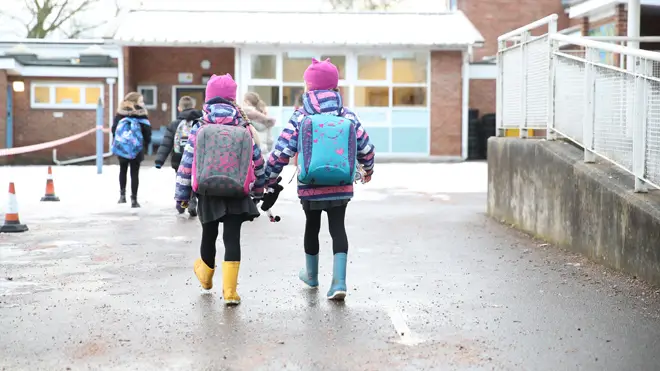
Iain Dale 7pm - 10pm
3 March 2021, 08:42 | Updated: 3 March 2021, 08:52

Children as young as three are frightened to leave home as the impact of lockdown takes its toll, LBC has learned.
An increase in bad dreams and bed wetting are some of the concerns parents have reported, but LBC has been told that some children are refusing to eat, and others are now scared to leave the house.
Sue Bell, CEO of ‘Kids Inspire’ charity in Essex, who provide mental health and trauma recovery to children and families, told us the children are experiencing “heightened anxieties” because of lockdown.
She said “children who’re quite young who probably wouldn’t have come to our notice, we’re now very aware of because they are anxious about leaving their homes, even going to walk in a park. They don’t want to get out of the car once they get to a park. You know, those sorts of things are very, very sad”.
Sue says separation anxiety is also a big problem at the moment, with children “stuck like glue to their parents” after not mixing with many others for the best part of a year.
She told LBC: “Part of it might be I don’t want to leave my home; I don’t want to get out of my car; I don’t want to see other people - as opposed to a fear of I don’t want to catch a virus. I think there’s both… but I think it’s just that babies that have been born during the pandemic have predominantly seen their primary care givers, and that’s not normal and that’s not healthy.”
Listen & subscribe: Global Player | Apple Podcasts | Google Podcasts | Spotify
And Sue says she is worried this isn’t just a short-term issue, saying we are at the “tip of the trauma iceberg”.
She said “I predict that we will have a generation of young children who will present as autistic. They won’t be autistic, but they could present as autistic because they haven’t had the very vital socialisation that individuals need. We need to feel connected, not just to our primary care givers but we need to be introduced to others.”
Kids Inspire say this year their referrals were up by 200% and they believe there’s going to be an increased need in their services going forward.